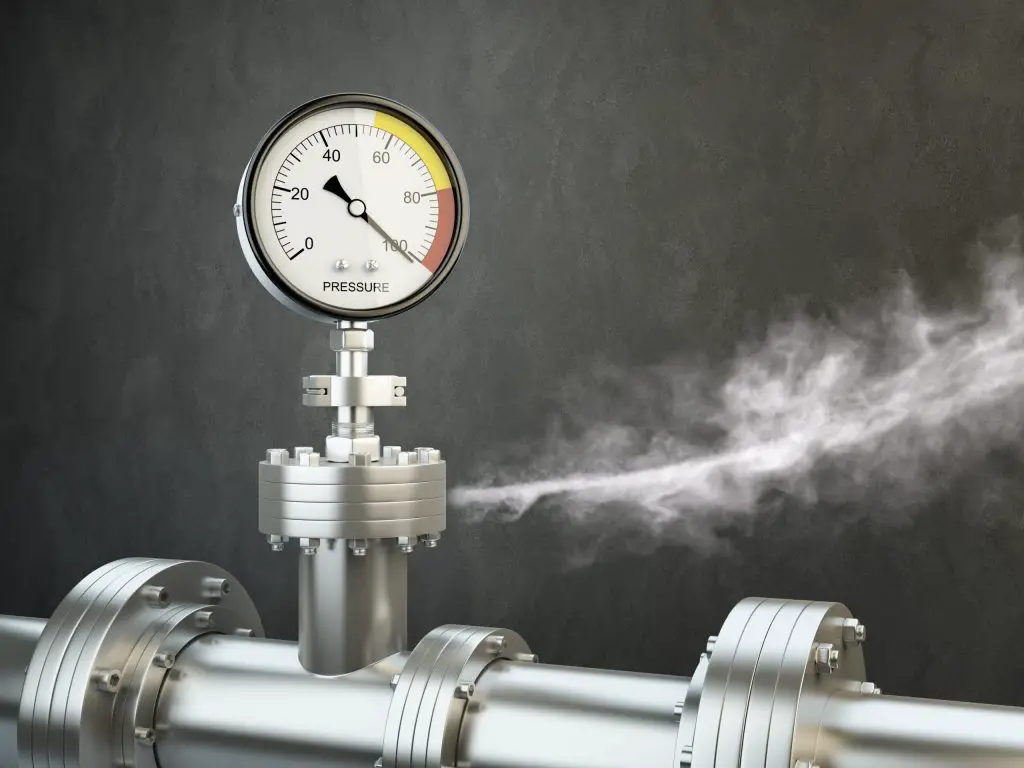Have you ever stepped into your laundry room, expecting the familiar scent of fresh linen or that comforting aroma of your favorite detergent, only to be met with the unsettling smell of gas? You keep asking yourself why my laundry room smells like gas! You’re not alone! I’ve been there, too, and the sudden whiff of something out of place can be alarming.
Our laundry rooms, with their mix of appliances, detergents, and often, a hint of dampness, can sometimes play tricks on our noses. But when it smells like gas? Well, that’s a mystery we need to dive into. Whether you’re a seasoned homeowner, a new apartment dweller, or someone just trying to figure out what’s up with that funky smell by the washing machine, join me as we unravel this smelly problem. Trust me, by the end of this article, you’ll feel a lot more equipped to handle (or at least understand) any unexpected aromas coming from your laundry corner!
I hope this provides a warm and inviting introduction for your blog readers! Let me know if you’d like any adjustments or if there’s anything else I can help with.
Why My Laundry Room Smells Like Gas

Here are several reasons your laundry room might have that distinct odor of gas.
- Natural Gas Leak
- Something Off With the Sewer or Septic System
- The Washing Machine Hose Gets a Bit Wonky
- Those Siphons Might Not Be Sitting Right
- Got Some Pesky Broken Pipes?
- Drains Feeling a Bit Stuffed Up?
- Your Gas Dryer Might Be Acting Up
- It Could Be the Gas Lines
- That Gas Odorant Might Be Off
- Rodent Problem
- Recent Cleaning or Painting
Is That a Natural Gas Leak?
If it is natural gas, you may have a leak from an appliance near the laundry room, such as a water heater, stove, or dryer that uses domestic gas. If this is the case, you should look for the leak. Your best suggestion will be, where the smell is strong, identify and seal it. Moreover, if the bad smell intensifies in the wall, it is advisable to call the gas company in charge immediately. During repair, it is recommended to turn off the domestic gas supply to avoid unfortunate incidents.
Something Off With the Sewer or Septic System?
If it is a sewer or septic system, you may lack good ventilation or water in the sewer siphon or gas cleaner, which is necessary to prevent gas from accumulating.
The Washing Machine Hose Gets a Bit Wonky
If bent or kinked, it accumulates water-producing mold, generating strong septic gas odors. Verify the correct position of the hose and that it is free of obstructions and breaks. Remove the hose from the device, and identify if the bad odor only emanates. If so, replace it.
Those Siphons Might Not Be Sitting Right
Siphons, often called drain traps, are designed to curve in the drains to block unpleasant smells like sewer gas. However, if they’re damaged or not set up correctly, they can be the source of unwanted odors in the vicinity.
Got Some Pesky Broken Pipes?
Broken pipes: cracks in the pipes allow septic gases to produce objectionable odors in the area. To evaluate this option, it is advisable to have advice from experts in the plumbing area.
Drains Feeling a Bit Stuffed Up?
Clogged drains produce sewer gas odors; hiring plumbers to clean properly them is necessary. However, you can try pouring hot water mixed with borax to eliminate or minimize the odors while reinforcements arrive.
Your Gas Dryer Might Be Acting Up
Sometimes, things can go a bit wonky if you have a dryer that runs on gas. A part inside isn’t working quite right, causing the gas not to burn off as it should. This could give off that familiar gas smell.
It Could Be the Gas Lines
Over time, the lines that bring gas to your appliances might get worn out, or connections could become a tad loose. It’s like how garden hoses start to drip as they age. This could lead to a faint gas smell.
That Gas Odorant Might Be Off
Natural gas and propane don’t smell. The gas companies add something called mercaptan to give it that distinctive odor. Think of it as a smelly heads-up that gas is present. If that mix is off or the mercaptan is past its prime, you might get a stronger smell than usual.
Rodent Problem
This one might seem a bit left-field, but stick with me. Sometimes, when pests or rodents pass away in hidden spots, they can produce a strong odor. It’s unpleasant, and occasionally, people might mistake it for a gas smell.
Any Recent Cleaning or Painting
Some products we use around the home have potent smells. If you’ve recently been cleaning with strong agents or doing a bit of painting, that might be what you’re picking up on.
How to Detect a Gas Leak in Your Laundry Room

Being vigilant about potential hazards is paramount in the safety and comfort of our homes. One of these potential hazards? A gas leak. Especially in rooms like our laundry, where gas and water appliances often reside side by side. A gas leak isn’t just about the smell – it’s about safety. Here’s a simple 5-step guide to help you detect if there might be a gas leak in your laundry room:
- Trust Your Nose
- Listen Closely
- Look for Physical Signs
- Install a Gas Detector
- When in Doubt, Call the Pros
Trust Your Nose
Natural gas is odorless, but utility companies add a sulfur-like smell (like rotten eggs) to make it detectable. If you enter your laundry room and are immediately hit by this scent, take it seriously.
Listen Closely
A faint hissing or blowing sound can sometimes accompany a gas leak. This is the gas escaping from the pipes. Hearing such sounds, especially when no appliances are operating, could be a sign.
Look for Physical Signs
Check your gas dryer and other gas appliances for any signs of discoloration or soot. These could be an indication of a gas leak causing incomplete combustion. Additionally, if you have a water-soap solution, you can dab or brush it on suspect areas. If there’s a leak, bubbles will form.
Install a Gas Detector
Consider investing in a natural gas detector, like a smoke or carbon monoxide detector. These devices can alert you early to gas concentrations in the air, giving you time to act before it reaches a dangerous level.
When in Doubt, Call the Pros
If you have even the slightest suspicion of a gas leak but can’t confirm it, it’s better to be safe than sorry. Shut off any gas appliances, avoid using flames or electrical switches, evacuate the area, and call your gas company or a professional plumber to have a look. They have specialized equipment and expertise to detect and fix leaks safely.
Dangers of Gas Leaks in the Laundry Room

Gas leaks, especially in enclosed spaces like a laundry room, pose significant risks. Recognizing the hazards of gas leaks is crucial so you can take immediate action if you suspect one. Here are three pressing dangers associated with gas leaks in your laundry room:
- Explosion and Fire Risk
- Health Risks from Inhalation
- Displacement of Oxygen
Explosion and Fire Risk
Natural gas is highly flammable. A small spark, even from flipping a light switch or plugging in an appliance, can ignite the gas, leading to a fire or explosion. This can cause extensive damage to your home and can be life-threatening.
Health Risks from Inhalation
Breathing in natural gas can have adverse effects on health. In the short term, it can lead to symptoms like dizziness, fatigue, headaches, nausea, and irregular breathing. Prolonged exposure can lead to more severe health problems, including loss of consciousness and even death.
Displacement of Oxygen
Natural gas can displace oxygen in a room, which means if you’re in a space with a significant leak, you might be breathing in more gas and less oxygen. This can lead to suffocation, especially in very confined spaces.
Immediate Steps to Take if You Smell Gas
The scent of gas in your home can be alarming, and rightly so. Gas leaks pose several dangers, from health risks to potential explosions. Swift action is vital if you ever catch a whiff of that telltale rotten egg odor indicative of a gas leak. Here are three immediate steps you should take:
- Shut Off Appliances and Don’t Ignite Anything
- Evacuate the Area
- Call for Help from a Safe Distance
Shut Off Appliances and Don’t Ignite Anything
Your first instinct might be to turn on a light to see better or to check a suspect appliance but resist the urge. Any electrical switch can create a spark, which could lead to an explosion in the presence of gas.
Also, refrain from lighting matches, candles, or cigarettes. If any gas appliances are on, turn them off if it’s safe, but only if the control is within arm’s reach.
Evacuate the Area
Safety first! Ensure that everyone in the household, including pets, evacuates the area or the home immediately. It’s better to be safe and overcautious when dealing with a potential gas leak. Once you’re in a safe location, preferably outside the house and away from the immediate vicinity, you can assess the situation further.
Call for Help from a Safe Distance
Once you’re safely away from the suspected leak, call your local gas company or emergency services to report the issue. They have the tools and expertise to handle the situation safely and effectively.
It’s crucial not to make this call from inside the house, as even a small spark from a phone could ignite the gas. Use a mobile phone from a safe distance or a neighbor’s phone.
Frequently Asked Questions
Why do I smell gas, but no one else does?
Phantosmia, often known as olfactory hallucinations, is a medical disorder. Individuals suffering from this disease feel they can detect scents such as smoke, natural gas, dirt, and flowers even when they do not.
How long should I air out my house after a gas leak?
That much gas in the air is hazardous, especially if a spark or match is started. You should leave everything open and spend at least fifteen minutes to a few hours to an hour outside in your automobile or something similar.
Is a small gas leak dangerous?
It is, indeed. A tiny gas leak might still catch fire and cause an explosion if another fire or an electrical spark ignites it.
What do I do if I smell gas in my laundry room?
If you suspect a natural gas leak, get everyone out of the house as soon as possible and to a safe location, then contact 911 or the utility company’s emergency number.
My Opinion
We’ve taken quite the olfactory journey through our laundry rooms today. From wonky washing machine hoses to those sneaky siphons, there’s more than meets the nose when it comes to puzzling gas-like scents. But remember, while it’s always a good idea to play detective with unfamiliar smells, safety should always come first.
If you’re ever truly concerned about a potential gas leak, don’t hesitate to contact the pros and ensure your space is safe. After all, our laundry rooms should be where our favorite jeans get that fresh-from-the-dryer warmth, not where we need clarification on our noses. Here’s to fresh, fragrant laundry days ahead!




